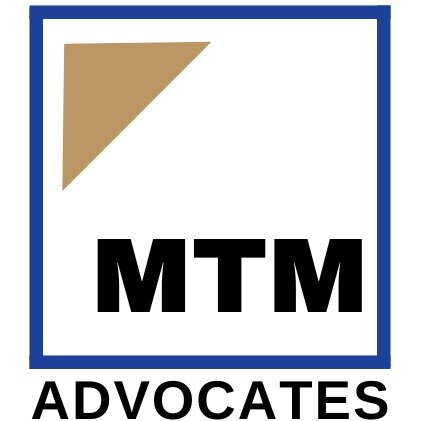Best Citizenship Lawyers in Ruaka
Share your needs with us, get contacted by law firms.
Free. Takes 2 min.
List of the best lawyers in Ruaka, Kenya
About Citizenship Law in Ruaka, Kenya
Citizenship law in Ruaka, Kenya, follows the national legislation and constitutional provisions that govern the acquisition, loss, and legal implications of citizenship within the country. Ruaka, a town in Kiambu County, adheres to the same legal framework as the rest of Kenya. Kenyan citizenship can be obtained by birth, registration, or naturalization, according to the Kenya Citizenship and Immigration Act and the Kenyan Constitution of 2010.
Why You May Need a Lawyer
Legal advice is often sought in Kenyan citizenship matters for various reasons. Individuals may need a lawyer to assist with the citizenship application process, to deal with dual citizenship issues, or to address the loss or revocation of citizenship. Lawyers can also help with legal intricacies such as renunciation, rights, and obligations under Kenyan law, and representation in any legal disputes arising from citizenship status.
Local Laws Overview
The key aspects of local laws concerning citizenship in Ruaka, Kenya are largely derived from national laws. The Kenya Citizenship and Immigration Act, 2011, offers comprehensive details on how one can acquire citizenship through various means, such as birth, descent, marriage, or lawful residence. The right to dual citizenship is also recognized, but certain offices and positions in Kenya are restricted to citizens by birth. It is essential to comply with local registration procedures when applying for or renouncing citizenship, which may include engagements with the registrar of persons or the immigration department.
Frequently Asked Questions
1. How can I become a Kenyan citizen by registration?
An individual can apply for Kenyan citizenship by registration if they are married to a Kenyan citizen, have lawfully resided in Kenya for a prescribed period, or hold certain other qualifying circumstances outlined in the law.
2. Is dual citizenship allowed in Kenya?
Yes, the 2010 Constitution of Kenya allows for dual citizenship. However, there are obligations and requirements one must fulfill to maintain this status legally.
3. Can one lose their Kenyan citizenship?
Under specific circumstances, Kenyan citizenship can be lost or revoked, for instance, if it was acquired through fraud or if one engages in actions that undermine the state.
4. What are the rights of Kenyan citizens?
The rights of Kenyan citizens include the right to vote, work, and own property in Kenya, among other civil and political rights as outlined in the Constitution.
5. How do I apply for Kenyan citizenship by naturalization?
To apply for citizenship by naturalization, one must have legally resided in Kenya for a continuous period as stipulated by the law and meet other qualifications such as good character and knowledge of Kiswahili.
6. What documents are required for citizenship applications?
Typically, you will need identity documents, marriage certificates (if applicable), proof of residence, and any other relevant legal documentation as prescribed by the Department of Immigration Services.
7. Can children born abroad to Kenyan parents acquire Kenyan citizenship?
Yes, children born abroad to Kenyan parents are entitled to Kenyan citizenship by descent.
8. Is there a citizenship test in Kenya?
Applicants for naturalization may be required to undergo an interview or test to assess their knowledge of Kenyan culture, language, and government, among other aspects.
9. Can Kenyan citizenship be obtained through investment?
Kenya currently does not have a direct citizenship-by-investment program. However, economic contributions and investments might support a residence permit application which could eventually lead to citizenship through naturalization.
10. Who has authority over citizenship matters in Kenya?
The Department of Immigration Services is the main governmental body responsible for citizenship matters in Kenya.
Additional Resources
Individuals seeking legal advice on citizenship should consider consulting the Department of Immigration Services, the Ministry of Interior and Coordination of National Government, and the Kenya Law Reform Commission. Local legal aid societies and registered attorneys specializing in immigration and citizenship law are also valuable resources.
Next Steps
If you need legal assistance in citizenship, you should gather all relevant personal documents and contact a qualified immigration lawyer who can guide you through the citizenship process. It may also be beneficial to schedule a consultation with the Department of Immigration Services or attend public seminars on citizenship law to increase your understanding of your rights and responsibilities.
Lawzana helps you find the best lawyers and law firms in Ruaka through a curated and pre-screened list of qualified legal professionals. Our platform offers rankings and detailed profiles of attorneys and law firms, allowing you to compare based on practice areas, including Citizenship, experience, and client feedback.
Each profile includes a description of the firm's areas of practice, client reviews, team members and partners, year of establishment, spoken languages, office locations, contact information, social media presence, and any published articles or resources. Most firms on our platform speak English and are experienced in both local and international legal matters.
Get a quote from top-rated law firms in Ruaka, Kenya — quickly, securely, and without unnecessary hassle.
Disclaimer:
The information provided on this page is for general informational purposes only and does not constitute legal advice. While we strive to ensure the accuracy and relevance of the content, legal information may change over time, and interpretations of the law can vary. You should always consult with a qualified legal professional for advice specific to your situation.
We disclaim all liability for actions taken or not taken based on the content of this page. If you believe any information is incorrect or outdated, please contact us, and we will review and update it where appropriate.








